Macros in C Programming – Don’t Consider it as an Outdated Feature
Today, macros in C is considered as outdated in modern programming practices, it still finds applications in C by making things easier for the programmer. We will help you to develop a clear understanding of macros by covering even the minute concepts.
In this tutorial, we will discuss:
- Macros in C Programming
- Types of macros
- Different predefined macros
1. Macros in C Programming
Macros are nothing but a piece of code based on the #define preprocessor. In the C programming language, a macro would generally look like:
#define MACRO macro_value
Key takeaway: It is important to note that the macros are not terminated by a semicolon (;)
For a better understanding of Macros, it is important to understand preprocessors in C.
2. Types of Macros in C Programming
In C, Macros are broadly classified into two distinct types. They are namely:
2.1 Object-like Macros
It appears to be a symbolic constant. It can be termed as an alternative way to define an identifier used to represent constant expressions. The simplest example would be:
#define PI 3.14
2.2 Function-like Macros
It is an expression, used to perform a particular operation. It is an alternative way to define a function. A simple example would be:
#define RECTANGLE(l,b) l*b
Here is a code in C that illustrates the use of macros to find the area of a rectangle:
#include<stdio.h>
#define RECTANGLE(l,b)l*b
int main()
{
printf("Welcome to DataFlair tutorials!\n\n");
int length = 3, breadth = 4;
int area = RECTANGLE(length,breadth);
printf("The area is: %d\n", area);
return 0;
}Having problems in understanding the above program? Check this out Basic Syntax Rules – Learn the ABC’s of CProgramming
Code on Screen-
Output-
Types of Predefined Macros in C
Here is a table that summarizes some of the basic macros used in the C programming language:
- _DATE_ – Used to represent the current date in MM DD YYYY format.
- _STDC_ – Used to indicate when the compiler compiles the code successfully by returning the value 1.
- _TIME_ – Represent the current time in HH:MM:SS.
- _LINE_ – Represent the current line number.
- _FILE_ – Represent the current file name.
Here is a code in C that illustrates the use of macros:
#include<stdio.h>
int main()
{
printf("Welcome to DatafLair tutorials!\n\n");
printf("The current date is: %s\n", __DATE__ );
printf("The current time is: %s\n", __TIME__ );
printf("The total lines in the code is: %d\n", __LINE__ );
printf("The file name is: %s\n", __FILE__ );
printf("STDC would return the value: %d\n", __STDC__ ); // %d is used since it would return an integer value
return 0;
}Code on Screen-
Output-
Quiz on Macros in C
Summary
In this tutorial, we discussed the basic meaning of macros, its 2 basic types with appropriate examples. We further carried our discussion on the various types of predefined macros available in the C programming with the help of a program.
It’s the right time to explore Typecasting and Type Conversion in C
We hope you liked the article. Don’t forget to share your experience.
Did you like this article? If Yes, please give DataFlair 5 Stars on Google
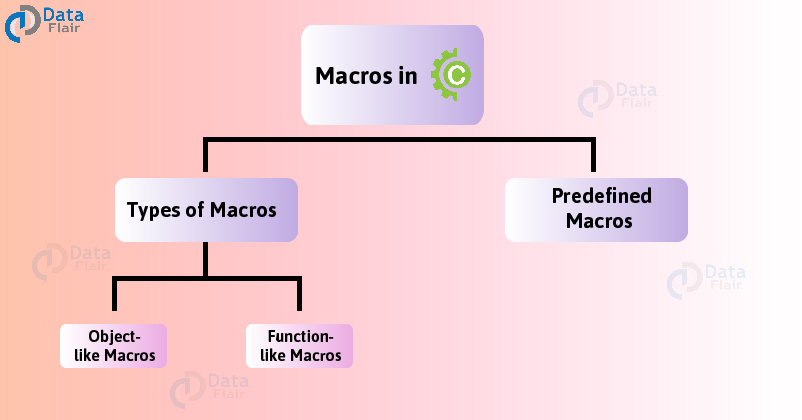
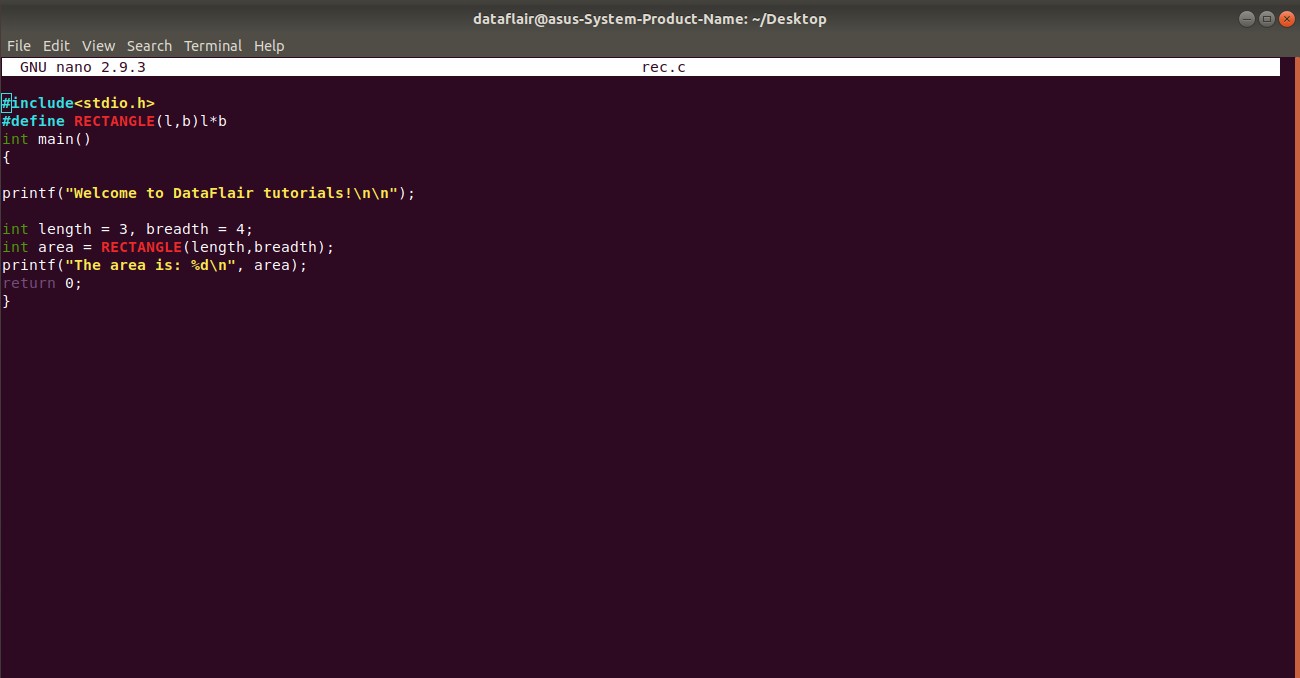
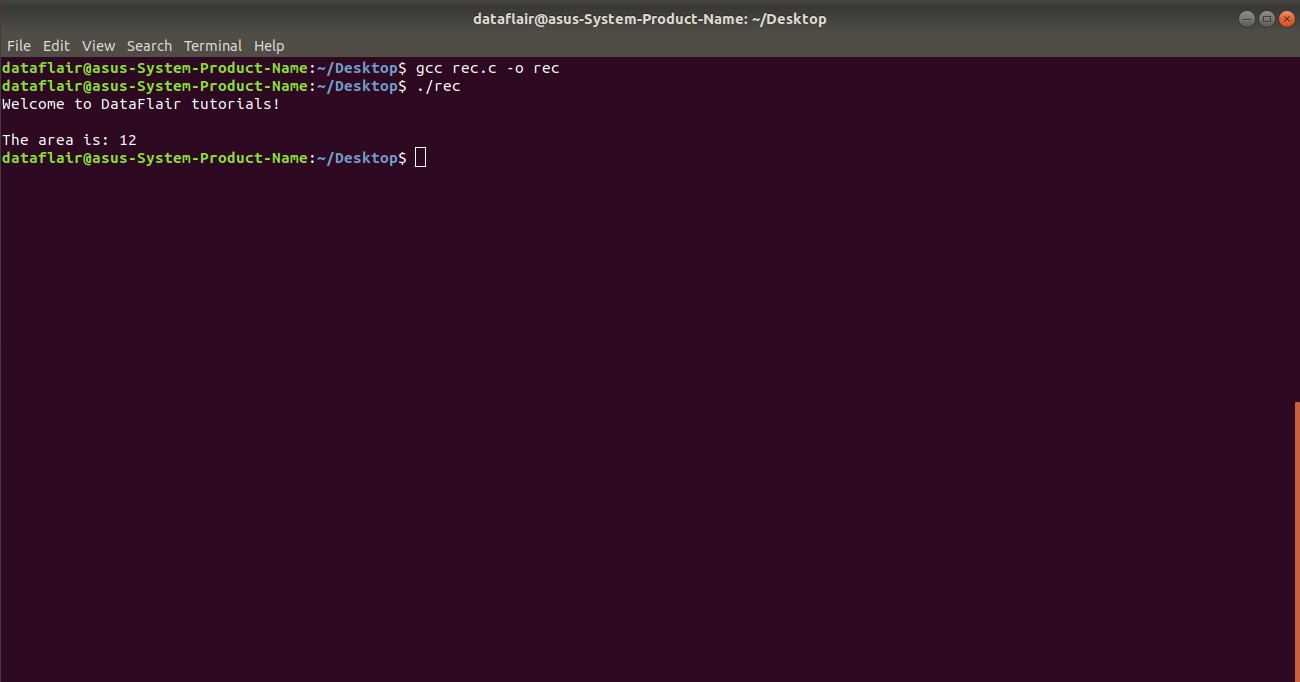
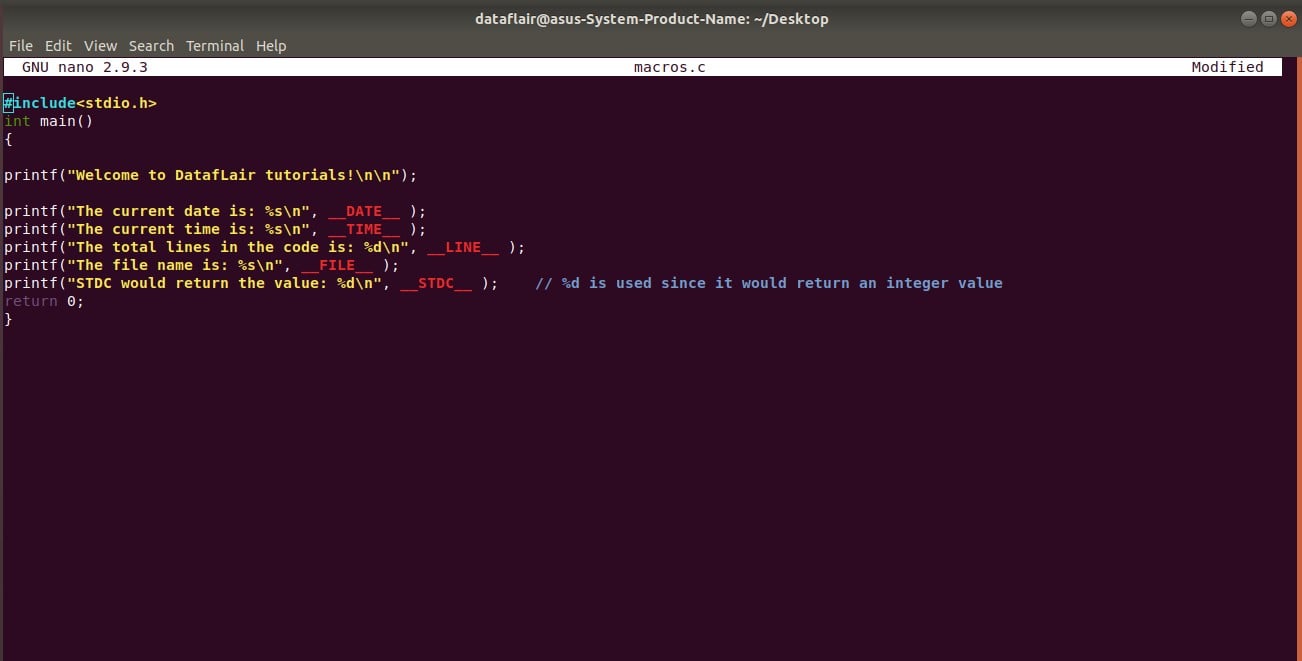
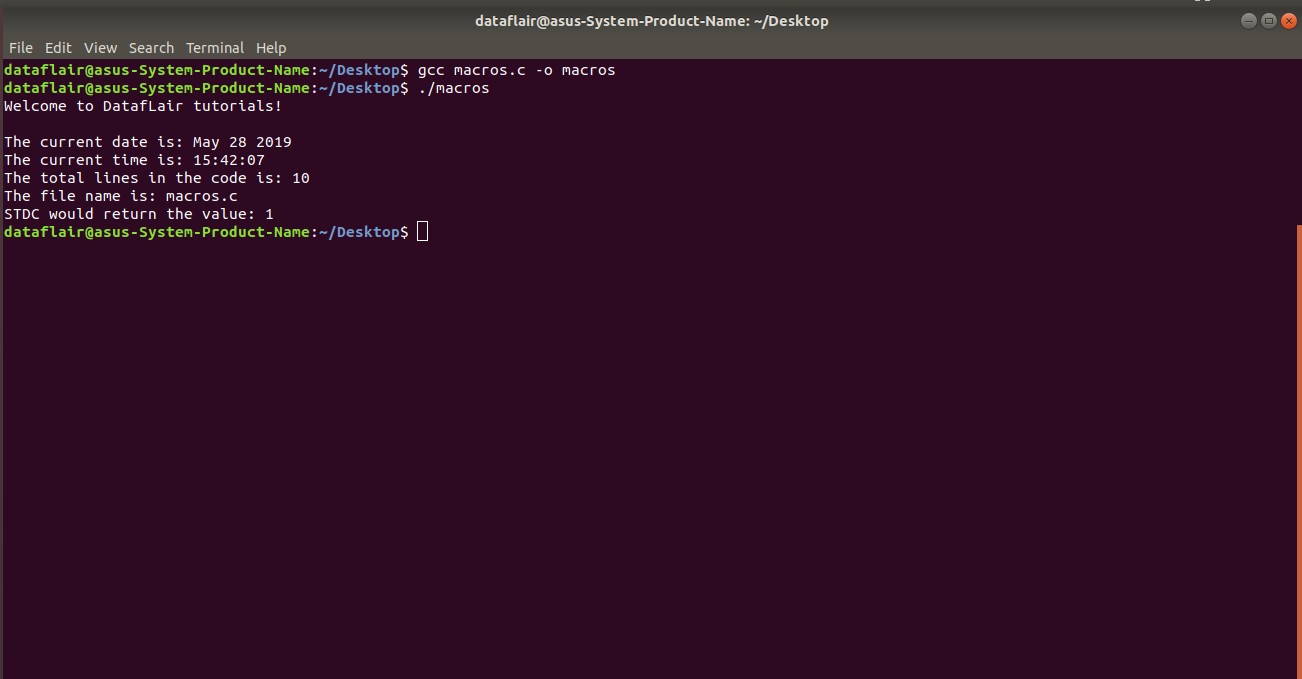


Sir,’check’ option not working ….how do i check answer which one is right or wrong…..